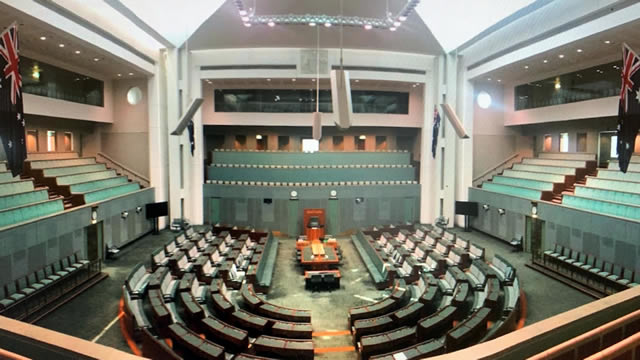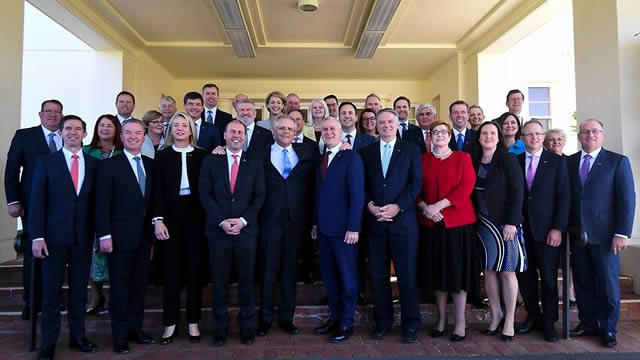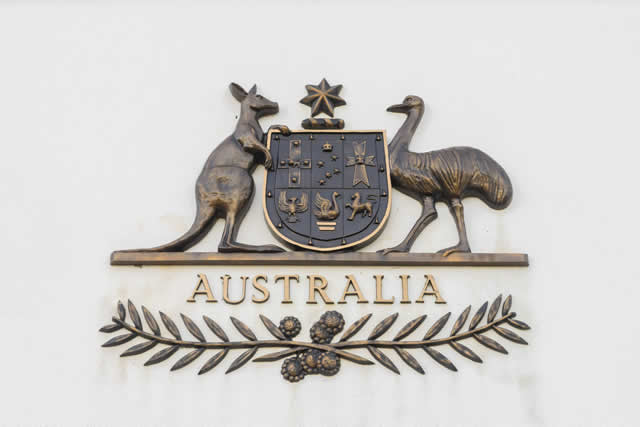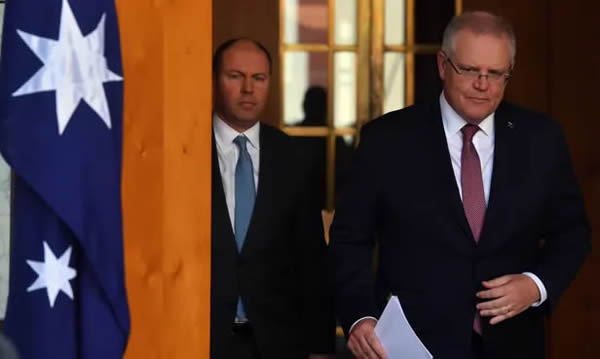…dedicated to advancing accountability of government and media in Australia
Guest Contributions
The Theodore Project is always receptive to guest Contributors. Whilst encouraging a diversity of views and constructive debate, we expect contributions to have contemporary relevance, analytical and well researched. Contributions may be on an eclectic range of topics with a focus on politics and economics. Guest contributions will be published under real name.
We have been harangued over the last decade as to the dangers and irresponsibility of fiscal deficits. Those ‘deficit’ concerns have now, of course, been conveniently junked by our current government.
However, it now seems beyond dispute that the Covid-19 has exposed serious deficiencies in many of our democratic institutions. At the very heart of the matter lies the most serious of all deficiencies, an acute deficit in political trust. A recent major survey by the University of Canberra reports that “that only one in three voters now trust the Federal government” – a very troubling but also a damming indictment of this government.
Trust is the essential ingredient of good governance – without it the government’s capacity to manage major socio/economic issues (both short- and long-term) – is seriously impeded and eventually fails. Public accountability is the primary source of trust and it‘s here that we find the Morrison government’s greatest deficit.
But who is responsible for providing oversight of our elected representatives? Who watches the watchman? Quis custodiet ipsos custodes? In democratic theory, it is the role of the media is to provide the public with factual information and objective commentary regarding the operations of the Government, and the views and alternate policies of the Opposition.
However, our media focus is short term, it tends to sensationalise and trivialise issues, it is incapable of sustaining a complex argument, commercial imperatives often run counter to good public policy.
These are systemic problems which have been greatly magnified in the New Media with wide-ranging implications for democratic governance and political practices. Social media platforms have transformed the political media system and how citizens engage in politics.
These shortcomings do have dangerous implications. Particularly the media’s fondness for ‘opinion’ over ‘facts’ – the news cycle has been subjugated to the opinion cycle.
For media outlets, opinions are cheap and facts are expensive.
For audiences, opinions are interesting and facts can be boring
“The majority of politicians on the evidence available to us are interested not in the truth but in power and in the maintenance of that power. To maintain that power it is essential that people remain in ignorance, that they live in ignorance of the truth, even the truth of their own lives. What surrounds us therefore is a vast tapestry of lies upon which we feed”
Harold Pinter – Art,Truth and Politics (2005)





Government accountability and public trust has been debauched by the Morrison government. What issues underlie the government’s massive accountability/trust deficits ?
A few examples below:
1. A government who systematically practices political corruption in many forms and many levels:
- Political financial rorts – eg sports
- A modus operandi that acts in secrecy, avoids transparency
- Grants to ‘special’ friends – no competitive tendering
- Refusal to answer journalist’s questions
- Reneges on commitments eg “Ruby Princess” inquiry
- Jobs for retiring parliamentarians
- Water payments rip-offs – Barnaby Joyce and Angus Taylor
- Lack of parliamentary scrutiny
- Aged care debacle
- Vic state Liberals branch stacking with religious overtones
2. Public interest subjugated to ideological interests:
- Application of wagekeeper – exclusion of supposed ‘enemies’ eg universities, gig economy, arts community, childcare centres
- Unemployment benefit – job seeker
- Attack on labour market – masked as reform by covid-19
- Reckless pursuit of rampant rent seeking -Australian economy built on crony capitalism
- Instead of MMT we get Reagan/Thatcher – gov’t pursuit of neoliberalism espoused by the IPA agenda
- Fails to discourage hard-right extremists eg QAnon conspiracy
- East Timor bugging scandal- secret trials
- BOM under government pressure re climate change
3. Important strategic policy failures:
- Covid Recovery Commission – stacked with gas and mining lobbyists
- Secretive pursuit of gas-led economic recovery – creating a honeypot for rent-seekers
- Foreign policy failures – creation of “military- industrial-intelligence-security” complex – failure to demonstrate independence from US in Northern Australia and globally – clumsy handling of China
- University fees imbroglio – poor economic justification
4. PM’s character flaws:
- Religiosity influence
- dreadful dissembler – Trump light
- effortless hypocrisy
- inadequate leadership skills
What is even more troubling is the corruption of mainstream media and its appalling failure in accountability.
Corruption is by its very nature an emotive topic. There is disagreement as to what actually constitutes corruption and the impact of such conduct on society. Behaviours that look unseemly and suspicious to decent people and which in a political system governed by honesty and integrity would be defined as corruption has become problematic – not least because we have so learned to tolerate it that and has, unfortunately, become normalised.The media is an essential mechanism relied upon by the general public to expose:
- government secrecy masking bad behaviour
- corporate malfeasance
- public sector corruption ie crony capitalism
- the unbiased reporting of facts
- not to be a partisan participant in democratic political processes
- not to sponsor irresponsible individual media personalities to turbocharge the opinion cycle.
